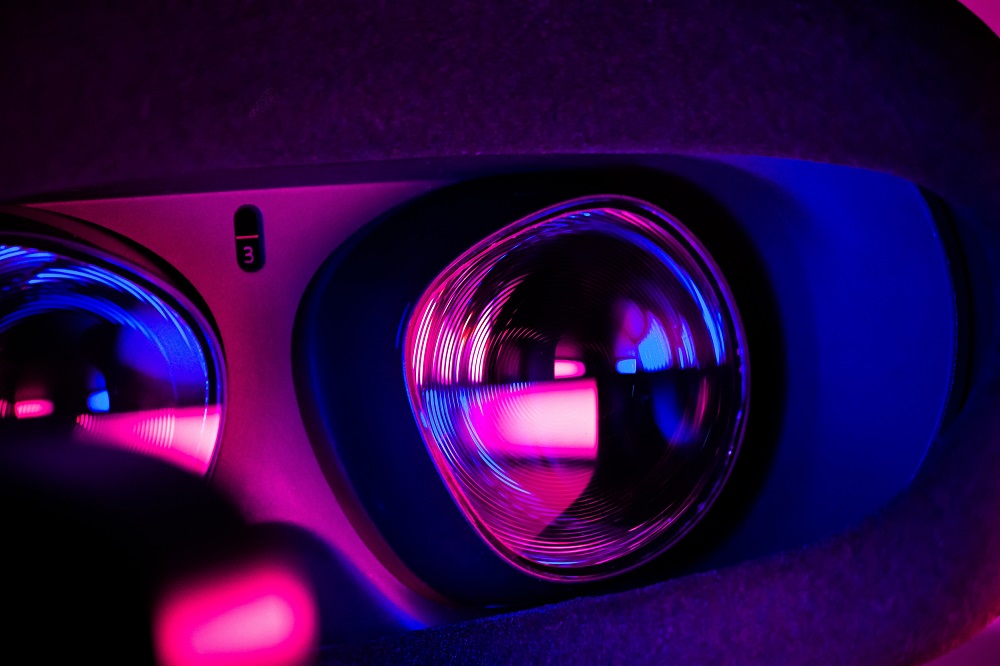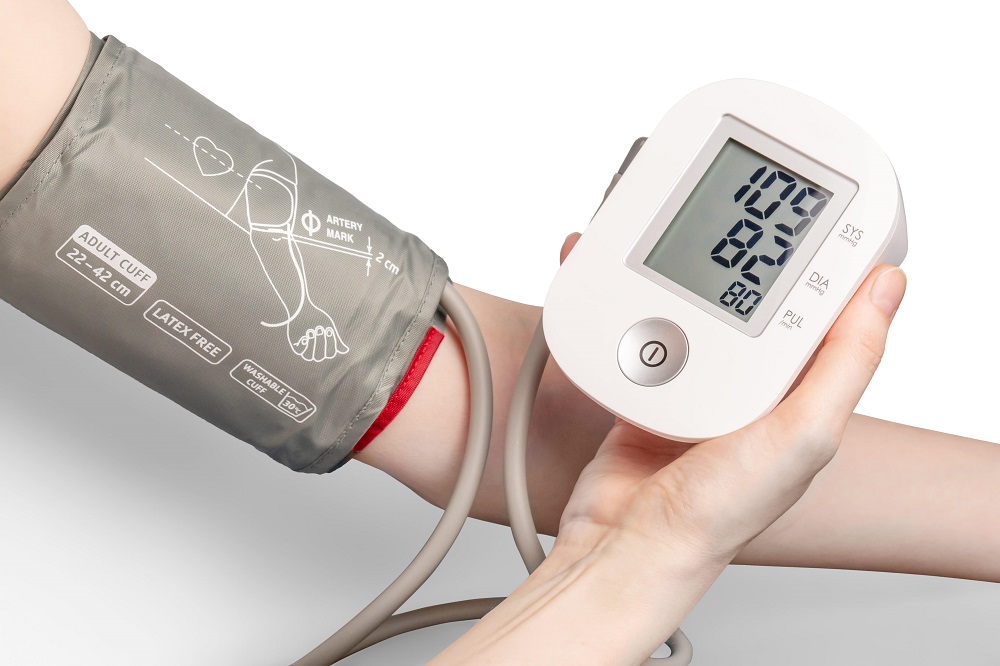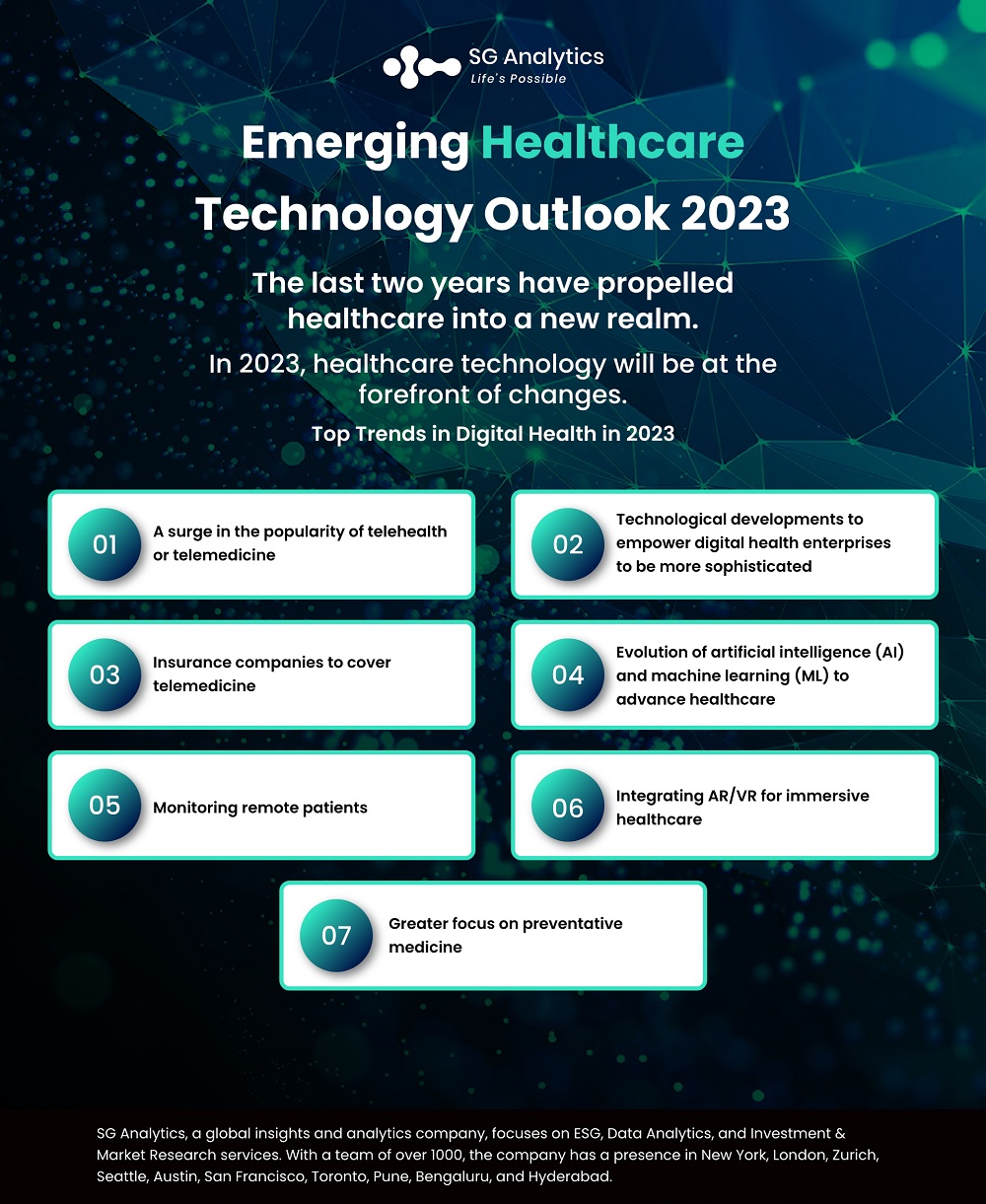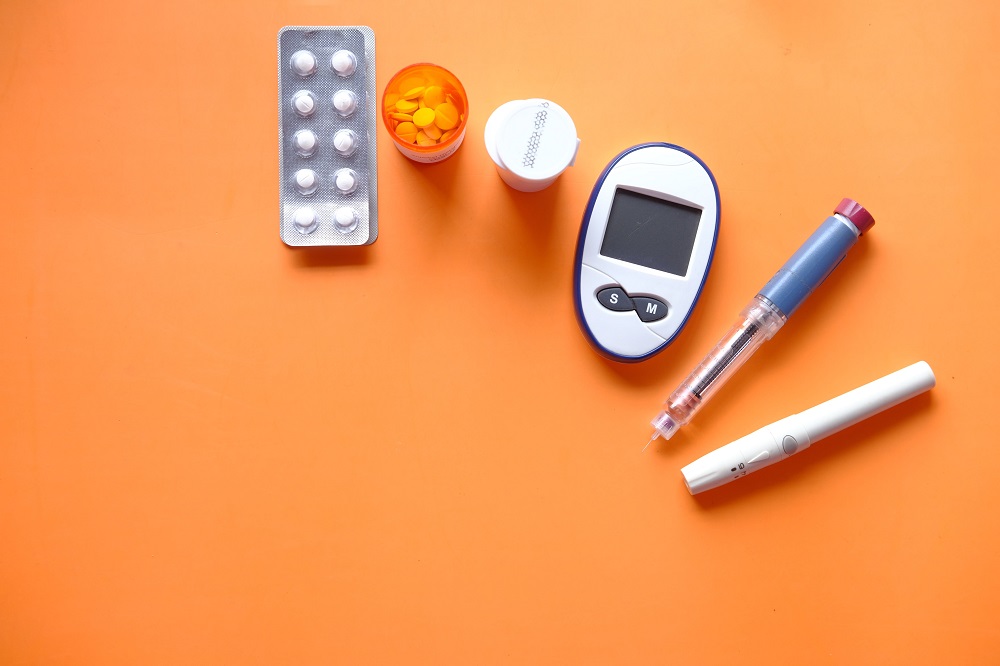The last two years have propelled healthcare into a new realm. And one area of medicine that will never stay the same for long is the upcoming new technology and equipment that will play a vital role in diagnosing, treating, and supporting patients.
Operators of medical practices are now aware of the prudent transition into a future of healthcare that is equipped with tech innovations and trends. The emerging trends are equipping healthcare professionals to carve out a bit of time from their busy schedules to understand better what may come. The emerging technology trends are likely to have an impact on organizations as well as medical professionals. Due to this reason, healthcare professionals are now engaging in adopting innovations that will remain valid for years to come.
With the world advancing on the path of digital transformation, let's explore the trends that will drive innovation in digital healthcare in 2023 and beyond.
Read more: Debunking the Myths - Does Innovation Holds Back Digital Transformation?

Top Trends in Digital Health in 2023
-
A Surge in the Popularity of Telehealth or Telemedicine
The advent of the global coronavirus infections shut down large sectors of the economy and impacted medical and healthcare technology trends. Many patients had to cancel their doctor's appointments due to the fear of spending time in the waiting rooms with other people who might harbor the virus. In-person encounters at reception, as well as with nurses and doctors, also witnessed a fall.
This led to a surge in the popularity of telehealth and its usage in healthcare. Telehealth offers doctors a way to see and examine their patients, even in a limited way. Experts are now predicting a rise in the use of telemedicine in years to come. The costs of medical telehealth services rose by 265% between 2020 and 2023. It went from $29 billion to $106 billion, a report from Healthcare Dive highlighted. According to industry researchers, patients who suffer from chronic conditions will benefit due to telemedicine or telehealth sessions.

-
Insurance Companies to Cover Telemedicine
With telemedicine becoming more accessible, it is being frequently covered by insurance providers as well. What was once considered an ad hoc activity is now a common inclusion in insurance programs. Several insurance products and plans cover all virtual and telehealth services. Other insurance plans offer people the choice of virtual or physical appointments.
Telehealth today is a much more economical way to receive effective healthcare. A recent United Healthcare report stated that patients could save over $130 using telehealth. Many insurance providers also offer 24/7 telehealth access.
Read more: Wearable Tech: A Promise to Revolutionize Healthcare
-
Monitoring Remote Patients
One of the significant implementations of technology in digital health to keep top of mind is the ability it offers healthcare professionals to monitor their patients remotely. With the healthcare industry evolving at a rapid pace, digital health solutions are assisting in enhancing patient outcomes in the future.
In 2023, the trend is likely to continue and incorporate new advancements. It will make it much easier for healthcare providers to place a heart monitor to record and monitor their vitals at home instead of admitting them to the hospital for days. With digital health tools, healthcare providers can monitor the vital statistics of their patients from the convenience of their office.

-
Technological Developments to Empower Digital Health Enterprises to be More Sophisticated
Insights from virtual reality and wearable platforms are equipping healthcare providers with incredible user data showing how people use technology. This represents multiple industries that can work together in unison to develop digital health solutions.
The available digital health apps in the markets have their own limitations on hardware and software. The advancements in smartphones are also assisting in fostering developments in digital health tests. They offer users with more usable, precise, accurate, and engaging health insights. Digital health companies are starting to offer digital results of the diagnosis by attaching a disposable sensor that areas the accumulated data.
-
Evolution of Artificial Intelligence (AI) and Machine Learning (ML) to Advance Healthcare
Artificial intelligence (AI) and machine learning (ML) are making predicting, diagnosing, monitoring, and treating patients effortless and manageable for healthcare professionals. These technologies assist clinicians in monitoring the health of their patients - in terms of their eating habits, when they sleep, monitoring their weight, and much more. It is also facilitating the delivery of personalized healthcare care based on the needs of the patient and their choices.

AI and ML are now becoming the most popular technologies in the healthcare sector. A PwCs study highlighted that 73% of healthcare executives believe that deep learning, natural language processing (NLP), and predictive analytics are significantly enhancing the ability of healthcare companies to treat their patients onsite as well as remotely. The global AI-in-healthcare market is estimated to reach $15.1 billion in 2022 and will hit $20.65 by 2023.
Read more: The Next Tech Time Warp: How Will Artificial Intelligence Possibly Change the World?
-
Integrating AR/VR for Immersive Healthcare
With the rising popularity of the virtual world, software development companies are venturing into exploring the three-dimensional world of simulations. They are putting augmented reality to practical use by integrating them with health tech. Augmented reality (AR) and virtual reality (VR) technology are here to stay and are now assisting healthcare professionals in delivering not only information but also facilitating patient care. Immersive tech is being used as an educational tool to offer medical personnel the anatomy of a patient's body or to inform them about surgical procedures better. Augmented reality is also equipping surgeons with a better view of the operating area. It enables them to operate more efficiently with fewer errors and more confidence.

-
Greater Focus on Preventative Medicine
Monitoring health meant reactively treating sickness. The idea of getting sick and receiving a cure signifies that the healthcare system must treat things after they have gone wrong. This, over the years, has led to creating a mountain of massive healthcare costs, followed by poor patient outcomes.
But today, the scenario is changing. People are engaging in proactive ways to stay active and healthy. They rely on fitness wearables and daily wellness tools to follow a routine that helps them in preventing chronic issues like diabetes, dehydration, and depression. More employers are offering wellness products, including access to athletic classes, meditation apps, and an emphasis on wellness.
Wearables, as well as digital health platforms, are offering biomarkers that show wellness and illness. This allows the users to see their health trends and preventative risk factors early. And as this data is stored digitally, it is simple to share with healthcare providers to get a more comprehensive health analysis.
Read more: Tech-driven Enterprises in 2023: How will Technology Spending Deliver Value?

Digital Transformation In Healthcare in 2023
Digital health is a concept that is evolving through information and communication technology. Digital technology enables users to monitor and improve their health levels by offering data-driven insights into processes, behaviors, and outcomes connected to disease prevention.
Today there is no denying the significance of information and communication technology (ICT) in healthcare. People can gain greater access to healthcare thanks to digital health platforms. An innovative healthcare approach, digital health uses new tech-driven solutions to enhance the patient experience and the outcomes, detect and treat diseases; enhance health; decrease treatment costs while gaining better compliance.
However, it is not just about technology but about the people. In 2023, healthcare technology will be at the forefront of changes. Patients will experience quality improvements such as artificial intelligence (AI), machine learning (ML), and cloud computing will become commonplace in healthcare.
With a presence in New York, San Francisco, Austin, Seattle, Toronto, London, Zurich, Pune, Bengaluru, and Hyderabad, SG Analytics, a pioneer in Research and Analytics, offers tailor-made services to enterprises worldwide.
A leader in the Healthcare domain, SG Analytics is assisting healthcare companies in leveraging the power of information. Contact us today if you are in search of efficient Healthcare solutions to make sound business decisions.









